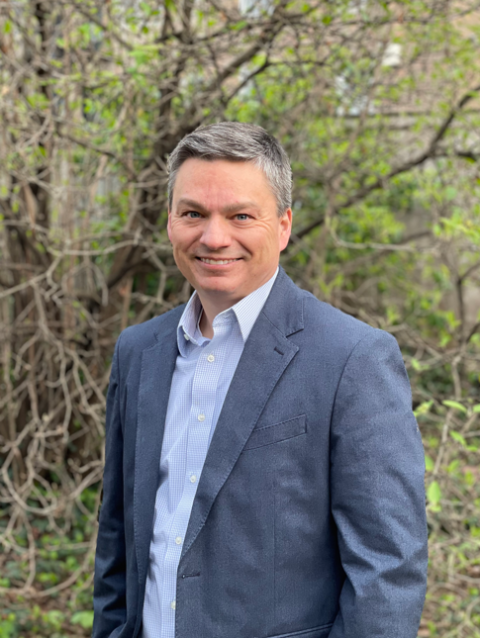A self-proclaimed movie buff, Professor Scott A. Snyder finds there are simply not enough major motion pictures that feature his subject of expertise: organic chemistry. Maybe that’s why he’s quite a big fan of perhaps the most well-known one, which he references in his teaching philosophy.
“This is really hard,” is the line actress Minnie Driver delivers while struggling with the subject in 1997’s Good Will Hunting. Snyder agrees with her analysis—but that’s also what makes teaching it so rewarding.

“What I try to do in my classes is bring in as many real-world examples of the foremost problems facing us—things that chemistry has solved really well, things that have not been solved at all,” said Snyder, who was recently appointed to a three-year term as the new Master of the Physical Sciences Collegiate Division, Deputy Dean of the College, and the Deputy Dean of the Division of the Physical Sciences.
“The vast majority of the students I teach in introductory classes are not going to become professional organic chemists, but they will become voting members of democratic societies. I want students to think about problems overall, so when science-based issues confront us, we can approach them in an intelligent and informed way.”
We sat down with Snyder, who joined UChicago’s Chemistry Department in 2015 and was honored with a Quantrell Award for Excellence in Undergraduate Teaching in 2017, about his background and new leadership role in the College.
As the new Master of the Physical Sciences Collegiate Division and associated deputy dean roles, what are your primary duties?
In short, my job is really to support the entire educational enterprise of the College as relates to the Physical Sciences Division and the Pritzker School of Molecular Engineering. That means both assisting and supporting faculty—and in particular thinking about how they can improve their courses and bring in the newest pedagogical tools that can be of value to our students—as well as ensuring that those who need appointments to be able to teach in the College get them in a timely manner. Fundamentally, though, it is making sure that our undergraduates have the best experience possible. One of my key priorities is research opportunities. This is something I think we already do well but need to make sure we sustain. Are there ways that we can ensure that there's even more of that both on campus and outside of it?
Overall, I’m very excited to hear from undergraduates about what they think could be better and stronger. So, if there are any suggestions for things that could enhance their experiences across the Physical Sciences Division and the Pritzker School of Molecular Engineering, please do not hesitate to reach out and let me know.
Tell us briefly about the Snyder Research Group and the work that you do.
I like to think of myself as a chemical MacGyver. MacGyver was a fictional character on television who could, with duct tape, a hammer, and a couple of other tools, fashion anything into whatever he needed to solve whatever problem he was confronting. So, what I would like to believe is that I can take any type of common chemical, or simple reagent, and be able to convert it into the most complex molecules that are known to humanity. So, what my group specifically researches are molecules that come from nature—whether plants, bacteria, trees, sea corals, etc.—and what we are looking to do is make complex structures that come from these different sources in a laboratory setting. In the process, we are trying to learn new reactions with the long-term goal of using these molecules to help treat disease. Sometimes this can be an anti-cancer therapy or antibacterial, but overall, these molecules are not naturally optimized for that behavior. We want to understand at a molecular level why do they do what they do. And then we can ask the question of how can we improve upon them to make them more biologically effective. It is a true pleasure to lead a highly talented team of undergraduates, graduate students, and postdoctoral fellows to address these types of problems.
What do you think makes UChicago special?
This is the only place I have ever received teaching reviews where students said that my introductory organic chemistry classes could be harder. I think organic chemistry itself is hard enough, and I don't think I necessarily offer an easy course, but I have really appreciated that students are excited to rise to the challenge and want to be challenged and pushed in their education. I think our students possess really strong levels of curiosity. So often my office hours are not so much about what is the right answer for a particular problem on the problem set, but really wanting to push beyond what has been presented in class—I've had students ask questions that are quite prescient for areas of research that have been quite rich. That keeps me really fueled and really excited.